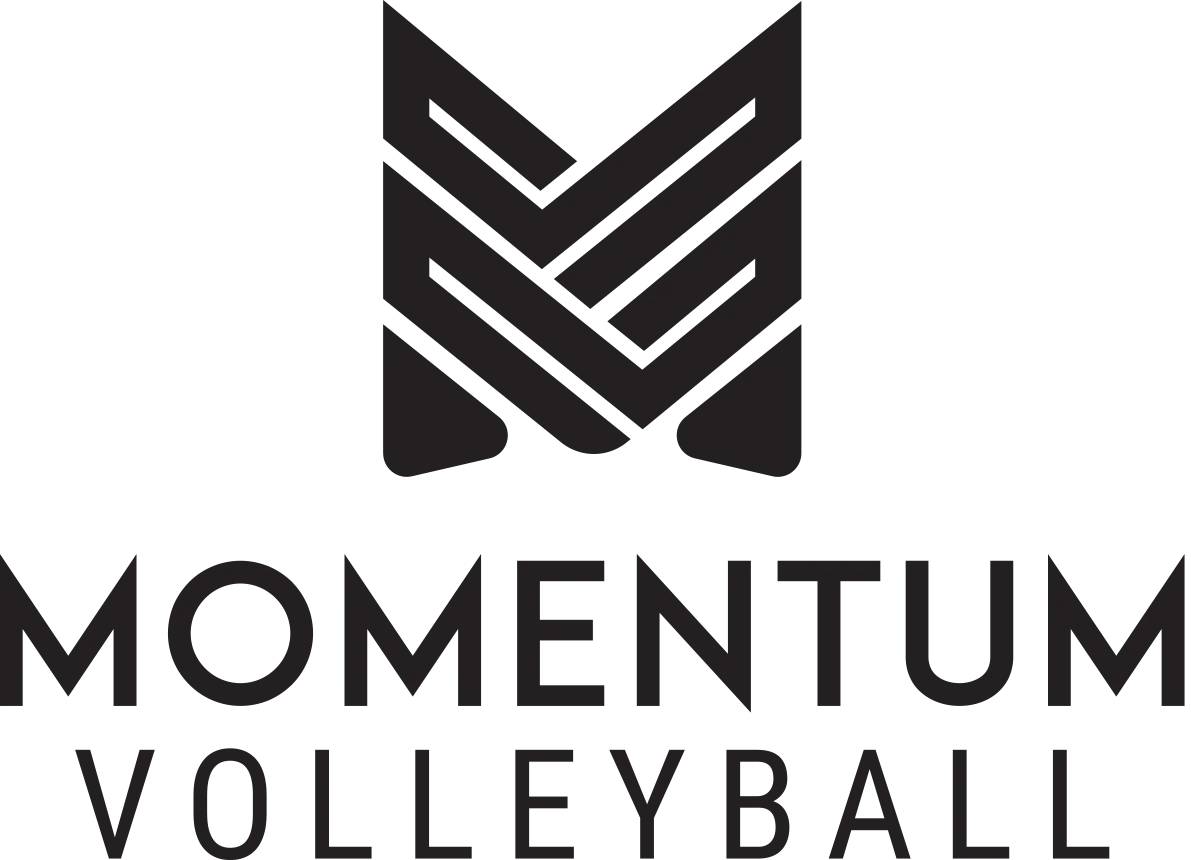Youth & Adult Volleyball:
Programs for athletes of all ages and levels!
Ready to register?
Click here: Register Now

Youth Technical Training:
Learn More
Youth Day Camps:
Learn More
Adult Leagues & Tournaments:
Learn More
Adult Technical Training:
Learn More
Current & Upcoming Programs:
Youth Technical Training & Day Camps
For more details on schedule, location, check out our Youth page!
Toronto
Winter Indoor Technical Training: Registration Opens for Late Winter/Spring 2025 on January 25th!
Toronto Volleyball Centre – 75 Carl Hall Rd. in Downsview Park, North York, ON (located inside The Hangar Sports & Events Centre)
Wednesday Athlete Development (Grades 6 to 8): 6pm-7:30pm
Wednesday Competitive Training (Grades 7 to 10): 7:30pm-9pm
Winter Dates: December 11th-18th, 2024, January 8th - February 26th, 2025
Late Winter/Spring Dates: March 5th - May 14th, 2025 (no program March 12th)
Thursday Athlete Development (Grades 6 to 8): 6pm-7:30pm
Thursday Competitive Training (Grades 7 to 10): 7:30pm-9pm
Winter Dates: December 12th-19th, 2024, January 8th - February 27th, 2025
Late Winter/Spring Dates: March 5th - May 14th, 2025 (no program March 13th)
Summer Indoor Camps: Registration Coming Soon!
Toronto Volleyball Centre – 75 Carl Hall Rd. in Downsview Park, North York, ON
Summer Beach Camps: Registration Open for Summer 2025!
Volleyball Canada Beach Training Facility in Downsview Park (75 Carl Hall Rd., Unit 3)
Learn More & Register Here: https://volleyball.ca/en/about/camps-and-clinics
Aidan Wilkie, [email protected]
Kincardine
Winter Technical Training: Registration Open for Winter 2025!
Davidson Centre – 601 Durham St, Kincardine, ON N2Z 1L7
Monday VolleyPlus (Grades 4 to 6): 4:25pm-5:55pm
Monday Athlete Development (Grades 7 to 8): 5:55pm-7:25pm
Monday Competitive Training (Invite Only): 4:25pm-5:55pm
Winter: January 13th (closed January 20th) January 27th - February 10th (closed February 17th) February 24th - March 3rd (closed March 10th) March 17th - April 7th
Spring: April 14th (closed April 21st) April 28th - May 12th (closed May 19th) May 26th - June 30th
Summer Indoor Camps: Registration Coming Soon!
Davidson Centre – 601 Durham St, Kincardine, ON N2Z 1L7
July 7th-11th
July 21st-25th
July 28th-August 1st
August 25th-29th
Summer Beach Camps: Registration Coming Soon!
Station Beach – 249 Station Beach Rd, Kincardine, ON N2Z 2Y6
Wiarton
Winter Youth Clinics: Registration Open!
Peninsula Shores District School – 115 George St. Wiarton, ON N0H 2T0
Cost: $25+HST/Session ($28.25)
February 8th, March 1st, March 29th, 2025
Grades 3 to 6 VolleyPlus (12:30pm – 2pm)
Grades 7 to 8 Athlete Development (2pm – 4pm
Grades 9 to 12 Athlete Development (4pm – 6pm)
Summer Indoor Volleyball Camps: Registration Coming Soon!
Peninsula Shores District School – 115 George St. Wiarton, ON N0H 2T0
Hanover
March Break Camp: Register Now!
Summer Indoor Volleyball Camps: Registration Opens in April!
John Diefenbaker Senior School: 201 18th Ave, Hanover, ON N4N 3S5
Contact Hanover Parks & Recreation for more information https://www.hanover.ca/childrens-day-camps
Program Details:
VolleyPlus, Grades 3 to 6: VolleyPlus Programs are for youth looking to get active for a fun camp, and learn volleyball along with other new games and activities. For early grade elementary school campers, our VolleyPlus programs are a great option for young athletes that like to play!
Athlete Development, Grades 6 to 8: Athlete Development Programs are for athletes developing their skills in volleyball, who are interested in getting better and learning how to play the game. Coaches are experienced in training athletes to get better, and help athletes develop both on and off the court. This level is a great fit for an elementary school-age athlete who is enjoying volleyball, and looking for more of the sport outside of school!
Competitive Training, Grades 7 to 10: Competitive Training Programs are for athletes eager to have successful tryouts & successful volleyball seasons. These athletes have usually selected volleyball as their primary sport. Coaches include collegiate & professional athletes, and work with the youth athletes to take their next step in competitive volleyball!
High Performance, 13u-16u: High Performance Programs are intended for competitive players only, who are committing to volleyball as their main sport; competitive club experience is very strongly recommended!
Each program includes skill development, gameplay and athlete development sessions.Our Momentum volleyball programs focus on volleyball skills for youth athletes of different levels. Our volleyball programs focus on skill development, game play training and tactical decision-making while working on the volleyball court! Our full day camps also include off-court development, which include movement and physical literacy sessions, to help campers improve as complete athletes. For these volleyball camps, we partner with elite resources & current/former elite athletes to provide a high-level experience for athletes looking to get better and continue to fall in love with volleyball!
What can I expect at Momentum’s volleyball camps?
Professional and varsity athletes leading athletes through activities
Professional collegiate & national-level coaches
Resource sessions & guest leaders, focusing on health and athlete education (Full day camps only)
Summer Camp Billet a Coach Program:
At our community camps, we invite families to apply to host one of our athlete coaches for the week. If accepted you will receive a camp fee rebate. If a family is accepted to host two pro coaches, your athlete will attend camp for FREE! For more information, email us directly at [email protected]!
Adult Leagues, Tournaments & Technical Training
Winter Adult Leagues: ALL LEAGUES SOLD OUT; Waitlist for Spring 2025
Address: The York School - 1320 Yonge Street
All League Schedules, Scores & Standings: Click Here
Athlete Waiver for Substitutions: Click Here
For more details, check out our Adult page!
Monday Intermediate Co-Ed 6s (6:45PM-9:45PM)
Dates: December 2nd, 2024 - February 24th, 2025
Closure Dates: Dec 23rd, 30th, 2024 (Winter Holiday); Feb 17th, 2025 (Family Day)
Tuesday Intermediate Plus Co-Ed 6s (6:45PM-9:45PM)
Dates: December 3rd, 2024 - February 18th, 2025
Closures: Dec 24th, 31st, 2024 (Winter Holiday)
Wednesday Intermediate Plus Co-Ed 6s (6:45PM-9:45PM)
Dates: January 15th, 2025 - March 19th, 2025
Thursday Advanced Co-Ed 6s (6:45PM-9:45PM)
Dates: January 16th, 2025 - March 20th, 2025
Friday Intermediate Plus Co-Ed 6s (6:45PM-9:45PM)
Dates: January 10th, 2025 - February March 21st, 2025
Closures: Feb 14th, 2025 (Family Day)
Winter Adult Tournaments: Registration Open!
Intermediate Co-Ed 6s Tournament in Etobicoke (Kings Court Etobicoke)
Date & Time: March 15th, 2025, 9am-4pm
Sunday Adult Technical Training: Registration Open!
Address: The York School - 1320 Yonge Street
Time: 5pm-7pm (Beginner/Early Intermediate), 7pm-9pm (Intermediate/Intermediate Plus)
Session 1: January 12th - February 9th, 2025
Session 2: Feb 23rd – Mar 23rd, 2025
Session 3: Mar 30th – May 4th, 2025 (No Training: April 20th, Easter)
Session 4: May 11th – Jun 15th, 2025 (No Training: May 18th, Victoria Day)
Locations
Central Toronto:
The York School – Main Campus: 1320 Yonge St., Toronto, ON
Enter on the North-East corner of the building, located at the corner of Farnham & Yonge St. There is a staircase that runs upstairs from Farnham St. to the north side of the building, and this is our main entrance for all programs at the school. There are parking options throughout the neighborhood and along Yonge St. in the evenings. There are a few close-by Green P options, a few churches and several private garages. St. Clair subway station is about a 4 minute walk north of the school, and Summerhill subway station is a 10 minute walk south of the school.
North York Hard Court:
Toronto Volleyball Centre – 75 Carl Hall Rd. in Downsview Park, North York, ON
Toronto Volleyball Centre is located inside The Hangar Sports & Events Centre. Enter through the main doors for The Hangar, and you will find volleyball located to your left just past the ball hockey rink! Parking is free in the lot surrounding the building. The Downsview Park is the closest subway station, and is a 12-minute walk north of the facility. There is also a GO Train station at the same station, that runs south to Union station and north to Aurora.
North York Sand/Beach Court:
Volleyball Canada High Performance Beach Volleyball Centre - 75 Carl Hall Rd. Unit 3, North York, ON
NOTE that this is a DIFFERENT LOCATION from our indoor programs! The Volleyball Canada facility is located on the North side of 75 Carl Hall Rd., and Unit 3 is the furthest unit West towards the hockey arena. Look for the Volleyball Canada logos on the door and front of the building. Washrooms and change rooms are located inside and available to use.
Etobicoke:
Kings Court Etobicoke – 1589 The Queensway #4, Etobicoke, ON
Enter on the South side of the building, located off the main road behind the KIA dealership all the way to the back as far as the lane goes. There is a single door as the main entrance to the right of the “Kings Court” sign. There is ample free parking in front and around the building. The nearest bus stop is at Atomic Ave which is on the same block as the facility.
Kincardine Indoor:
Davidson Centre - 601 Durham St, Kincardine, ON
Enter through the main doors, and turn right down the short flight of stairs. The gym is directly behind the front desk at the main entrance. Upstairs is available for mezzanine seating, where parents can watch with plenty of places to sit!
Kincardine Beach:
Station Beach - 249 Station Beach Rd, Kincardine, ON
The beach volleyball courts are visible as soon as you turn onto Station Beach Rd., and parking is available next to the courts. There are bathrooms next to the courts and a water fountain. A covered gazebo and Momentum's 10' x 10' tent are above several picnic tables for snack breaks.
Wiarton:
Peninsula Shores District School - 115 George St. Wiarton, ON
Enter through the main doors of the school, towards the North end of the entrance area. The gym is across the hall from the auditorium, and follows the North hallway that runs off the main entrance area. You should not have to open any doors inside until you get to the gym!
Owen Sound:
Timothy Christian School - 1735 4th Ave W, Owen Sound, ON
Enter through the main doors on 17th St. West, and the gym will be on your right.
Hanover:
John Diefenbaker Secondary School - 201 18th Ave, Hanover, ON
Enter through the main doors.
History & Our Mission
Founded in 2018, Momentum Volleyball began offering Youth Camps and clinics in smaller & rural communities in Ontario with a need for more volleyball programming. In 2021, we launched our first Adult League in Toronto, and expanded to offer Adult Technical Training in 2022. In the Spring of 2022, we expanded our programs to offer both day camps and our new Youth Technical Training in the Greater Toronto Area. In the Summer of 2023, we added more locations in new communities in the Grey/Bruce County area for youth programs! Our goal has remained to grow the sport across Canada, by improving access for youth to developmental programs. Our training programs are led by professional coaches and elite athletes, and our leagues are convened by athletes with a passion for the game and a love for organizing great volleyball competitions!
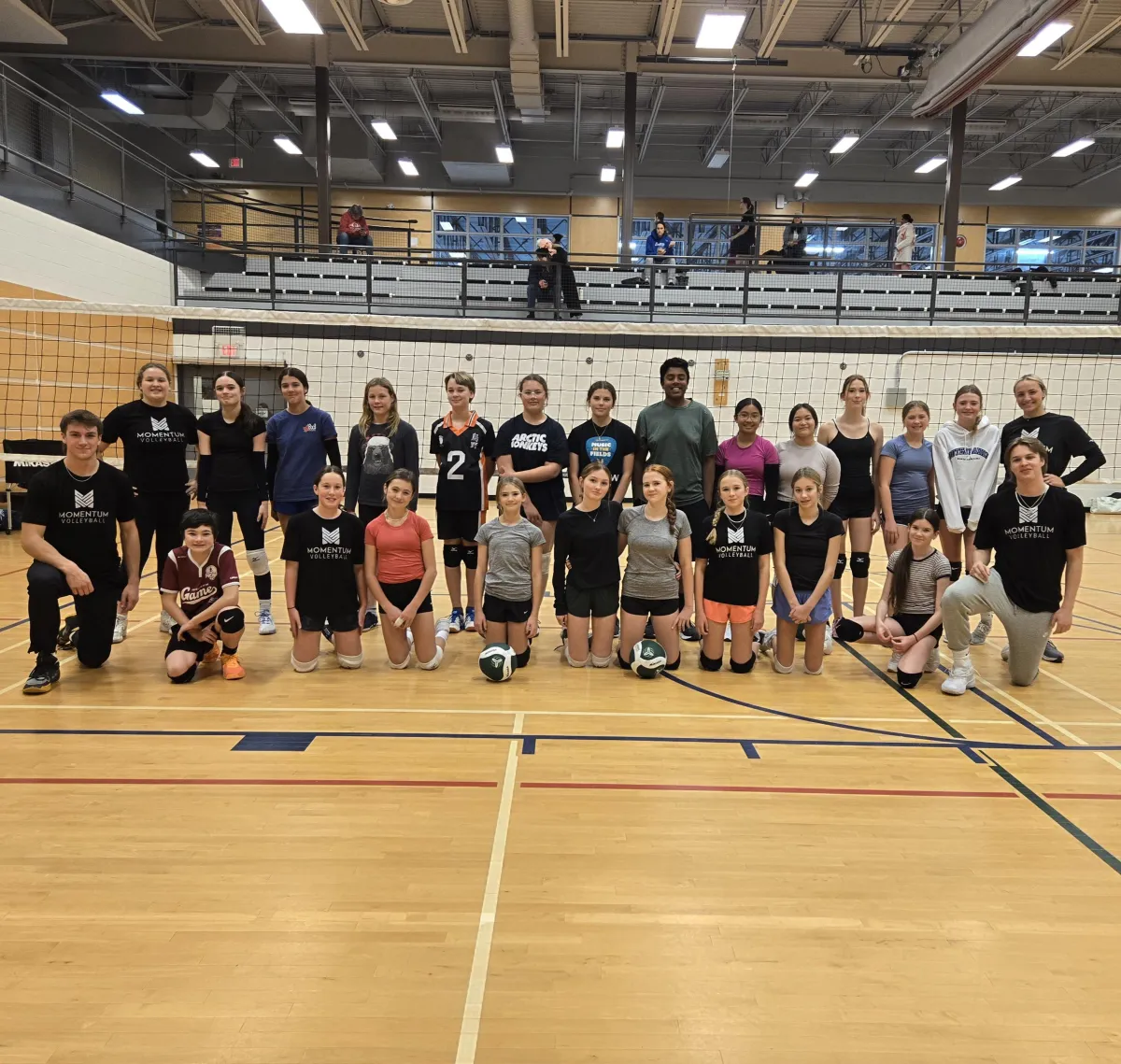
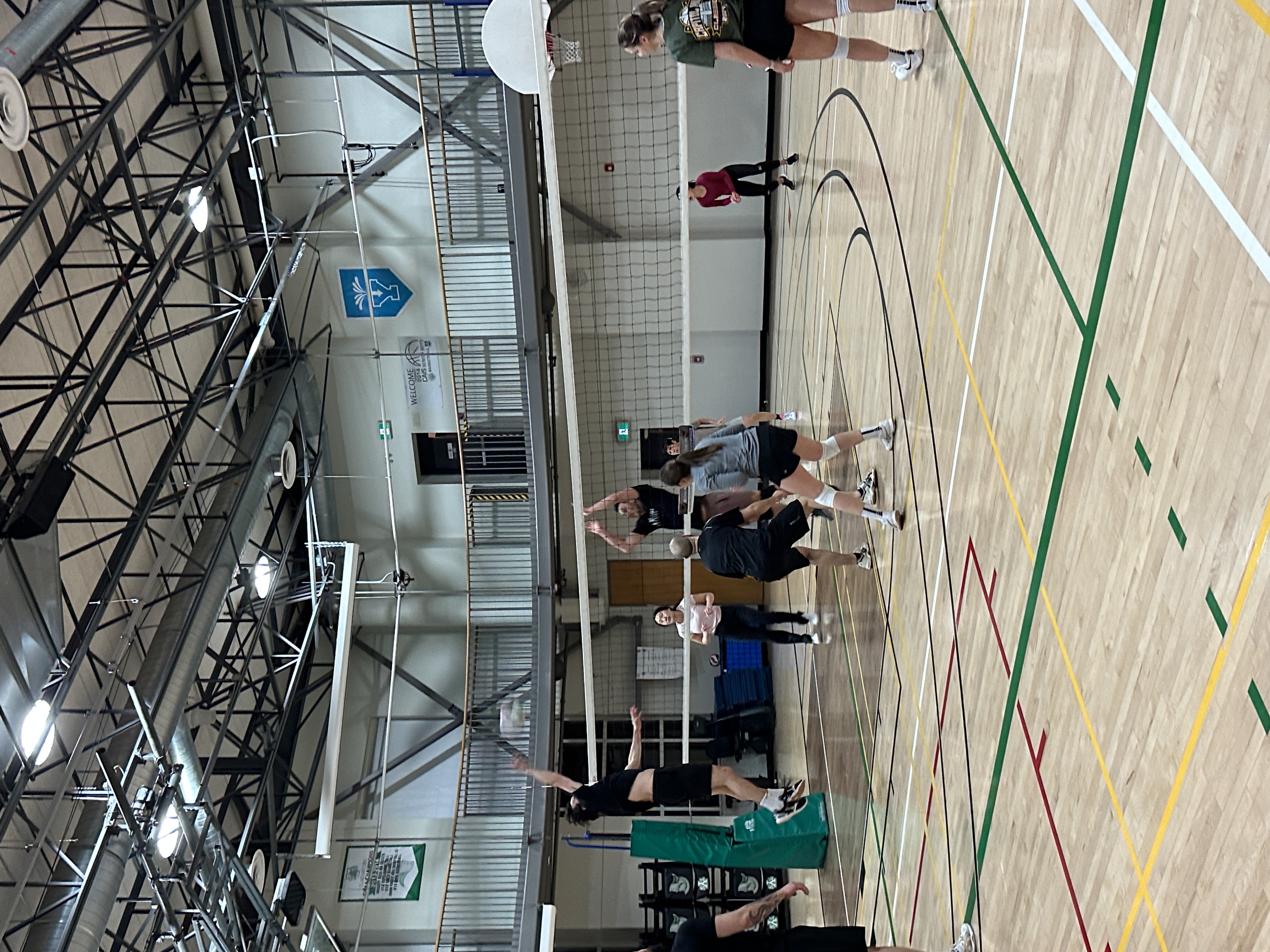
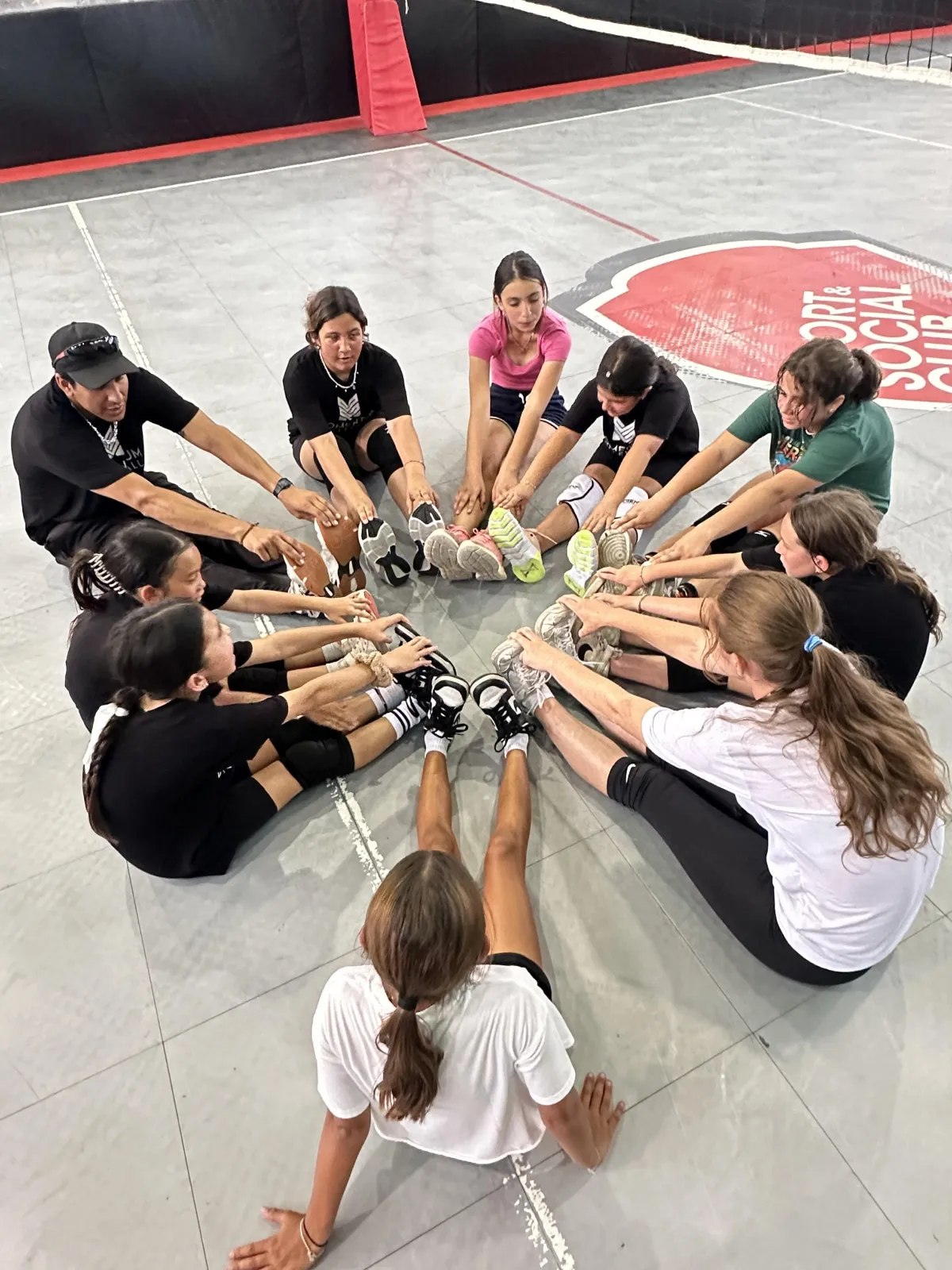
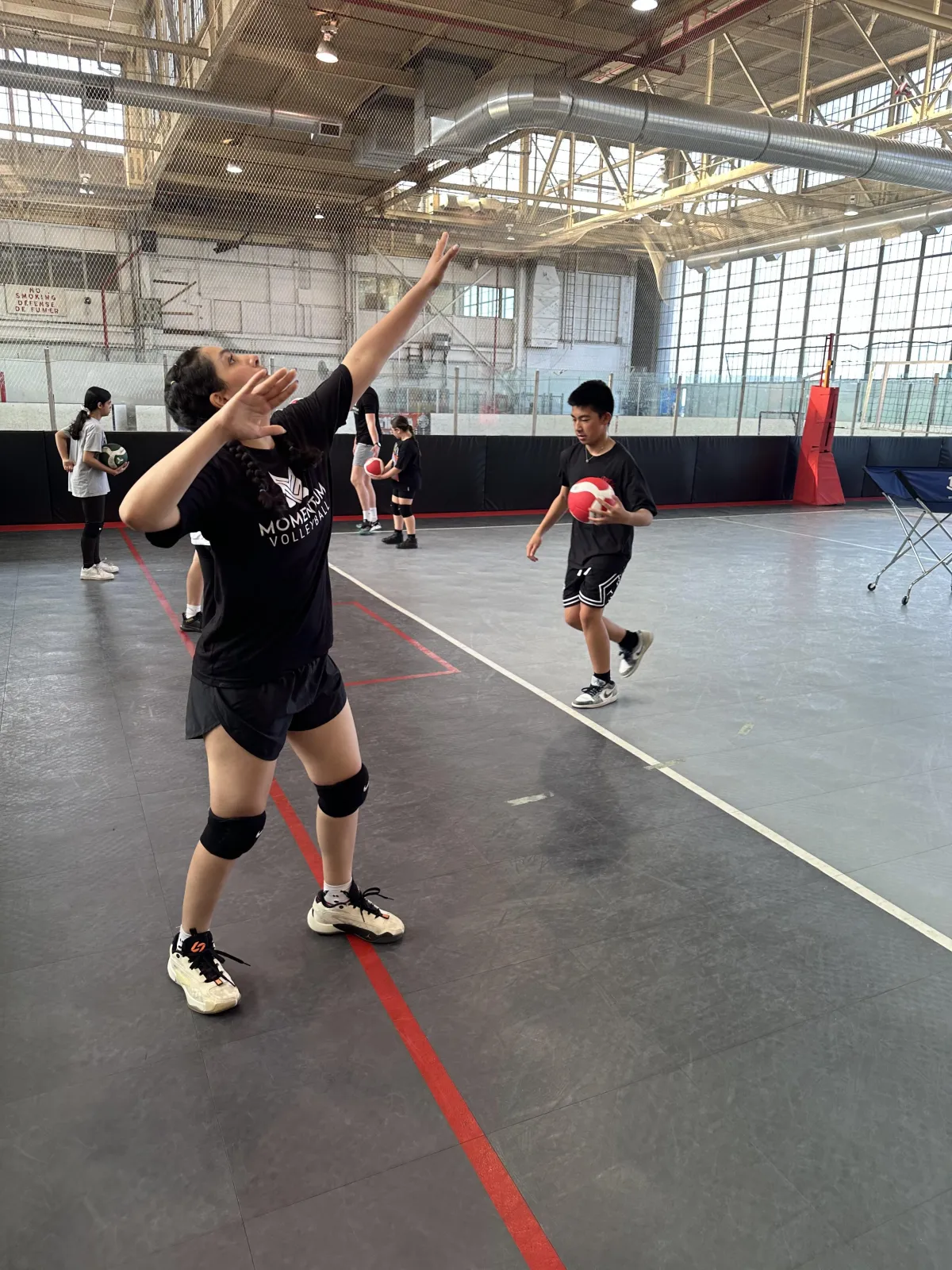
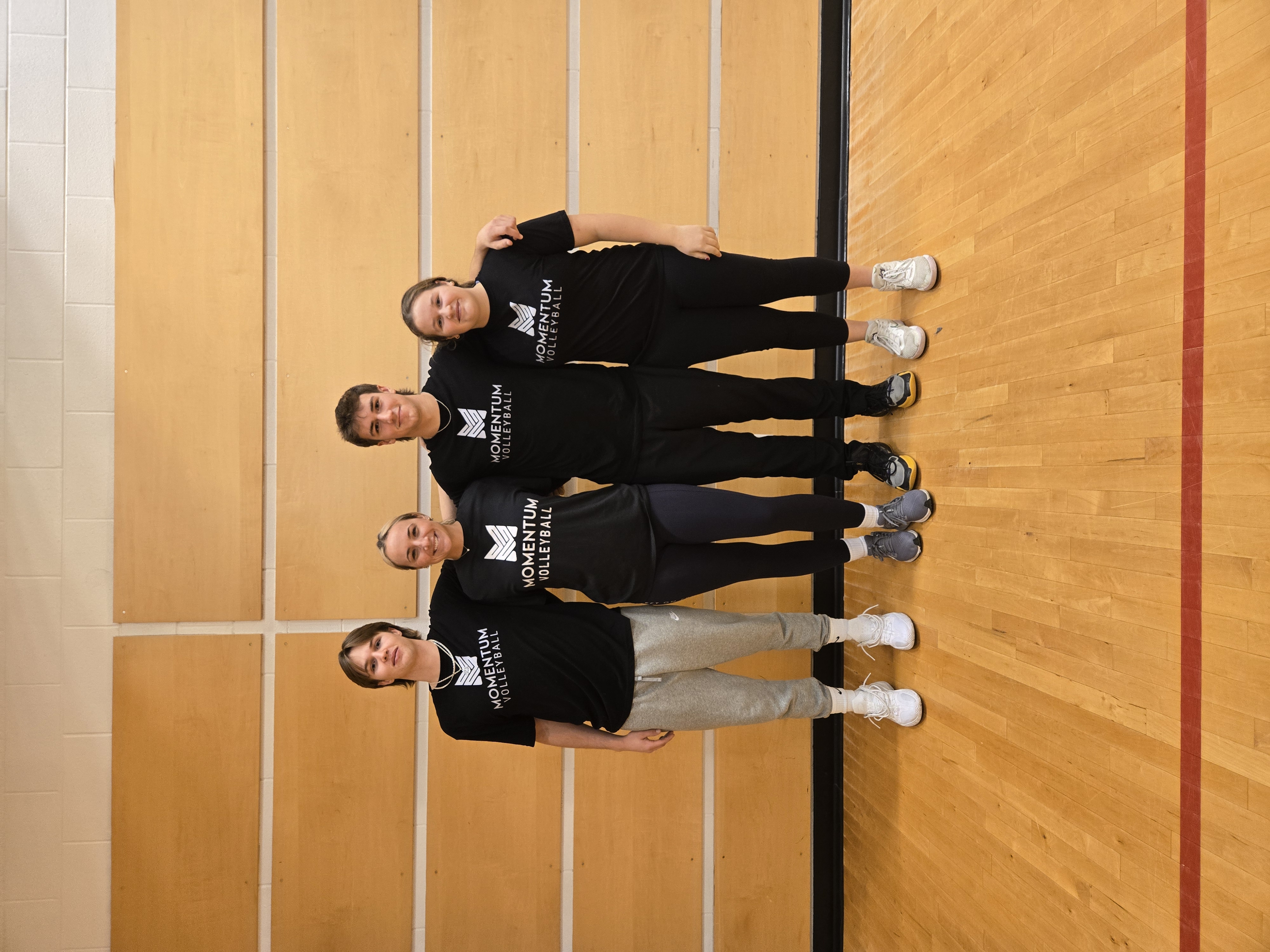
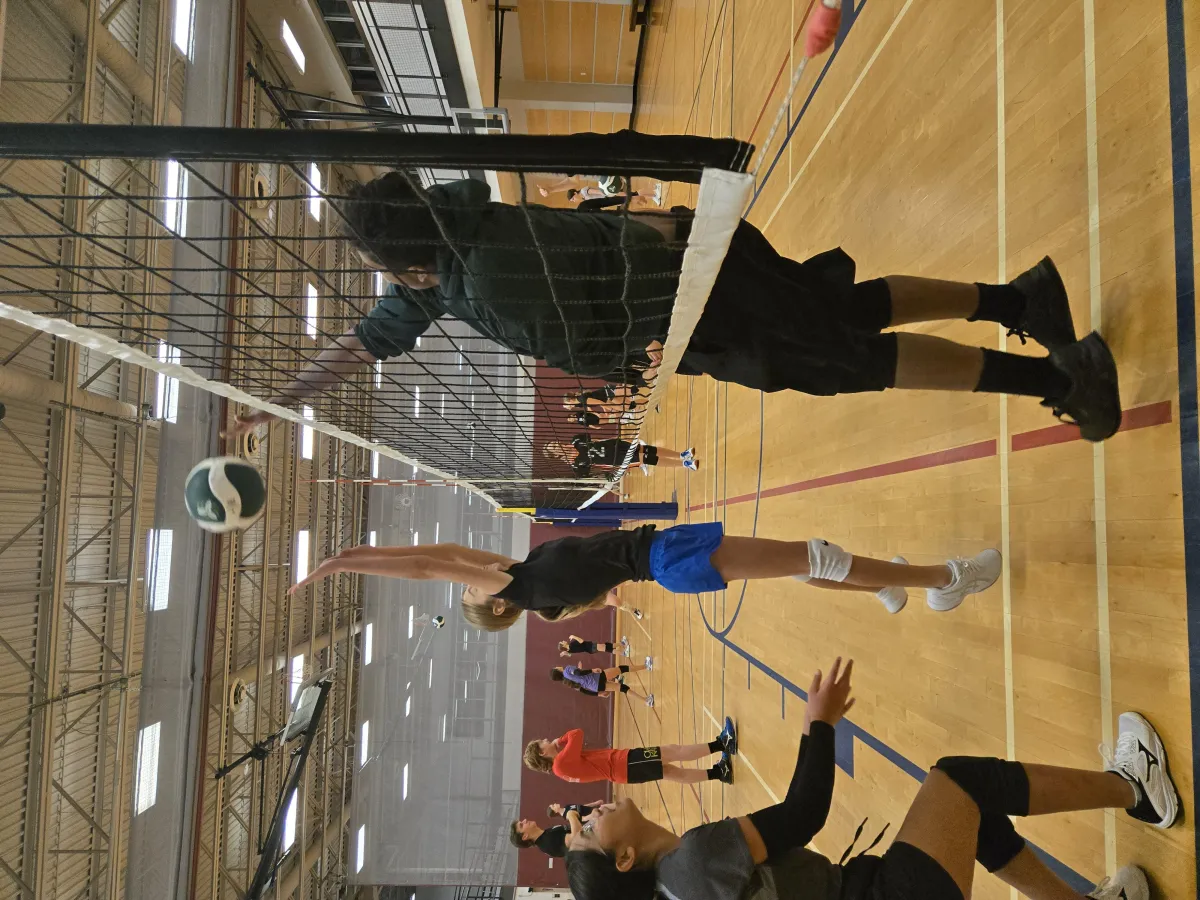
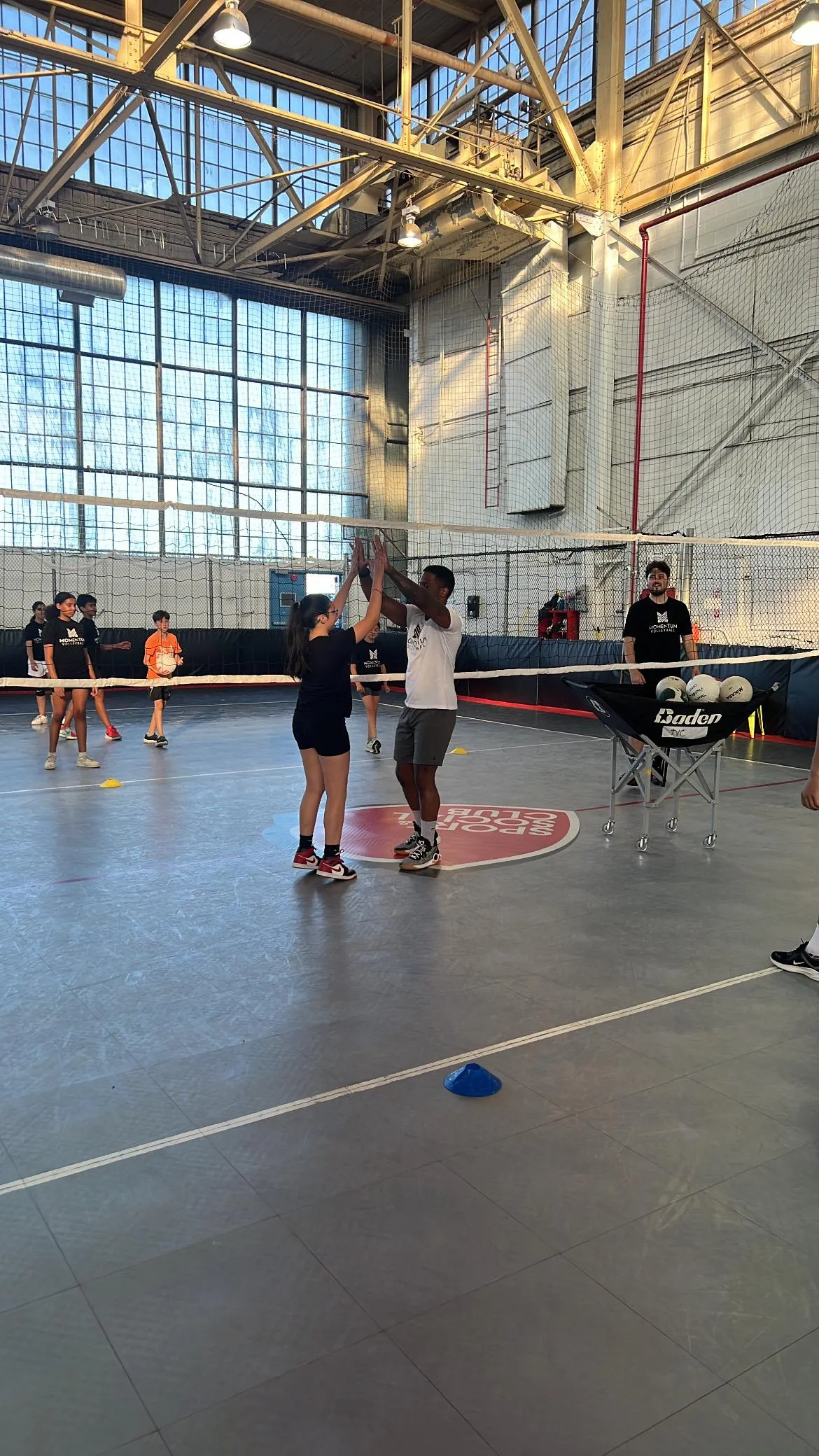
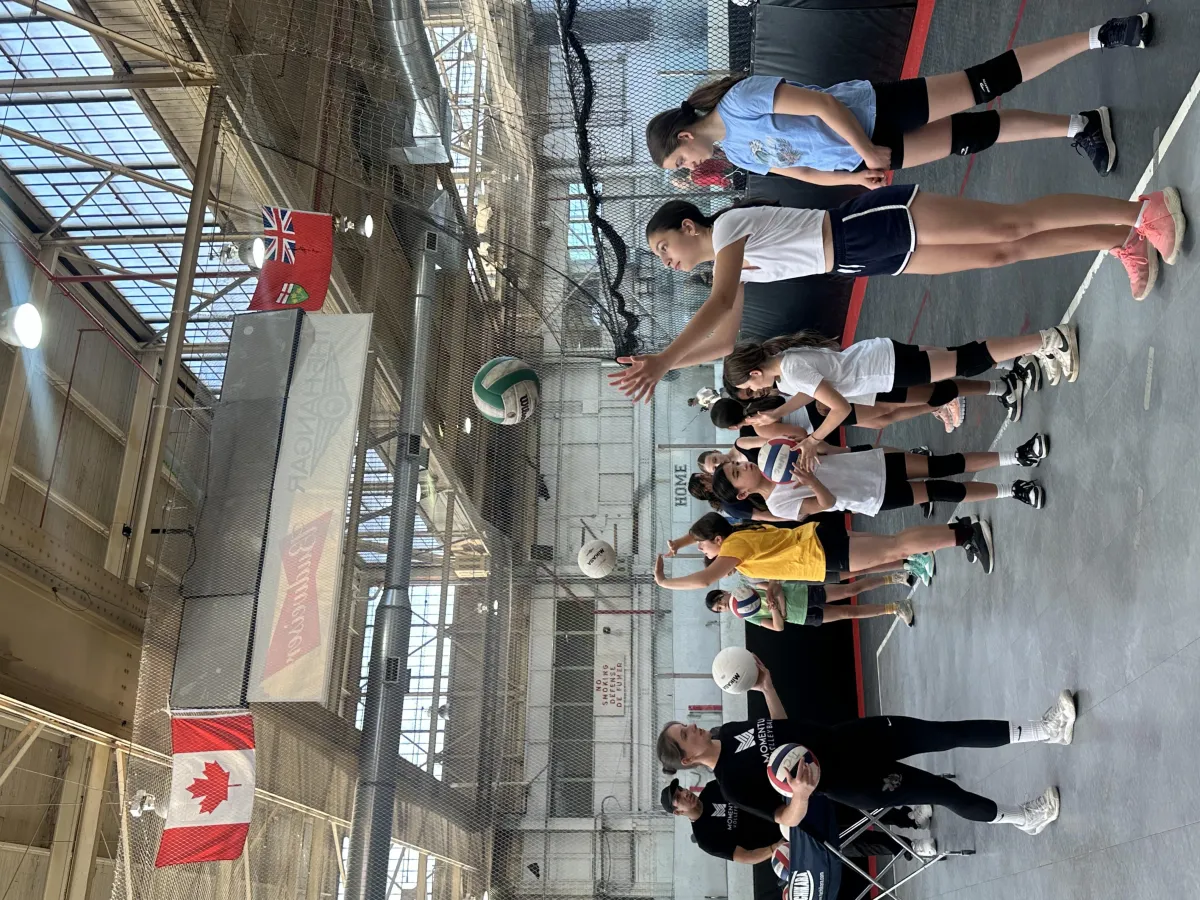
Follow Us on Facebook & Instagram:
Frequently Asked Questions
What is your Refund Policy?
Your registration fee is refundable in full if we cannot confirm your application. Your registration fee is refundable in full (minus credit card fees) if a request is received in writing by email more than 2 months in advance of the program start date. Your registration fee is refundable up to 50% (minus credit card fees) if a request is received in writing by email, more than 1 month in advance of the program start date. Your registration fee is refundable up to 25% (minus credit card fees) if a request is received in writing by mail or email up to two (2) weeks prior to the first day of the registered camp. There are no refunds within 2 weeks of a program’s start date. Registrations received within the above-listed deadlines will immediately be subject to the same policy, therefore if you register within two weeks of a program's start date, your registration fee is required in full to confirm your application, and there are no refunds. Our fees are inclusive for a full camp week or program season, and not day-by-day. Refunds will not be granted for days or sessions missed, or an early departure from camp.
Registration:
Email:
Website:
